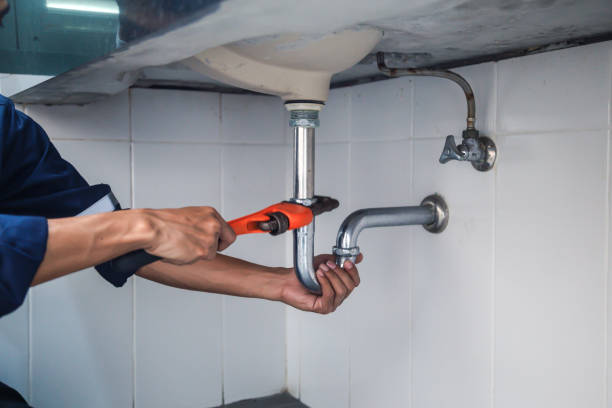
In any household or commercial property, the efficient functioning of drainage systems is crucial for maintaining a clean and hygienic environment. However, one common issue that can significantly impede the effectiveness of drainage systems is the buildup of minerals. Mineral buildup occurs when minerals such as calcium, magnesium, and iron accumulate in pipes and drains over time, leading to various problems that can disrupt the flow of water and sewage. In this comprehensive guide, we will explore the causes, effects, and solutions related to mineral buildup in drainage systems.
Understanding Mineral Buildup
Mineral buildup in drainage systems is primarily caused by the presence of hard water. For effective maintenance, consider professional services like drain cleaning in San Diego, CA, to prevent and address these issues. Hard water contains high levels of dissolved minerals, particularly calcium and magnesium ions. When hard water flows through pipes, these minerals can accumulate on the walls of the pipes, gradually forming a layer of scale. Over time, this scale can thicken and harden, leading to clogs and blockages in the drainage system.
Effects of Mineral Buildup on Drainage Systems
The effects of mineral buildup on drainage systems can be wide-ranging and detrimental. Some of the key impacts include:
Blockages and Clogs
One of the most common problems caused by mineral buildup is blockages and clogs in pipes and drains. As minerals accumulate and create scale deposits, they can restrict the flow of water and sewage through the system. This leads to slow drainage, backups, and ultimately, complete blockages that require professional intervention to resolve.
Reduced Water Flow
Mineral buildup can also result in reduced water flow through taps, showers, and other fixtures connected to the drainage system. The scale deposits inside the pipes constrict the water flow, causing low water pressure and making everyday tasks such as washing dishes or taking a shower frustrating and inefficient. Additionally, understanding the slow drains dangers is crucial, as they can lead to more serious plumbing issues and potential water damage if not addressed promptly.
Foul Odors
Mineral buildup provides an ideal environment for bacteria to thrive. As these bacteria decompose organic matter trapped in the pipes, foul odors can emanate from the drains, creating an unpleasant and unhygienic living or working environment.
Corrosion and Damage
In addition to clogs and odors, mineral buildup can also contribute to corrosion and damage to the drainage system. The chemical reactions between the minerals in hard water and the materials of the pipes can weaken their structure over time, leading to leaks, cracks, or even complete pipe failures.
Costly Repairs and Maintenance

Dealing with the consequences of mineral buildup in drainage systems can be costly. From hiring plumbers to remove blockages to replacing damaged pipes, the expenses associated with repairing a drainage system affected by mineral buildup can add up quickly and disrupt your budget.
Preventing and Managing Mineral Buildup
While mineral buildup can present significant challenges for drainage systems, there are several preventive measures and management strategies that can help mitigate its impact:
Water Softeners
One effective way to address mineral buildup in drainage systems is to install a water softener. Water softeners remove the minerals responsible for hardness from the water supply, thus reducing the accumulation of scale in pipes and drains.
Regular Maintenance
Regular maintenance of drainage systems is essential for preventing mineral buildup. Flushing drains with hot water, using enzyme-based cleaners to break down organic matter, and scheduling professional inspections can help identify and address early signs of mineral buildup before they escalate into more serious issues. Additionally, recognizing signs your drain requires professional service, such as persistent clogs or slow drainage, can ensure timely intervention and prevent more extensive damage.
Descaling Treatments
For existing mineral buildup problems, descaling treatments can help dissolve and remove the scale deposits inside pipes. Various commercial descaling products are available on the market, or you can opt for professional descaling services for more severe cases.
Upgrading Pipes
In some instances, upgrading to corrosion-resistant pipes or materials that are more resistant to mineral buildup can be a long-term solution to prevent recurring issues in drainage systems.
Conclusion
In conclusion, mineral buildup can have a significant impact on the efficiency and longevity of drainage systems. By understanding the causes and effects of mineral buildup and implementing proactive measures to prevent and manage it, property owners can ensure that their drainage systems continue to operate smoothly and effectively. Whether through the installation of water softeners, regular maintenance routines, or targeted descaling treatments, addressing mineral buildup promptly is key to avoiding costly repairs and maintaining a healthy environment for occupants. Remember, a little prevention can go a long way in preserving the integrity of your drainage systems.